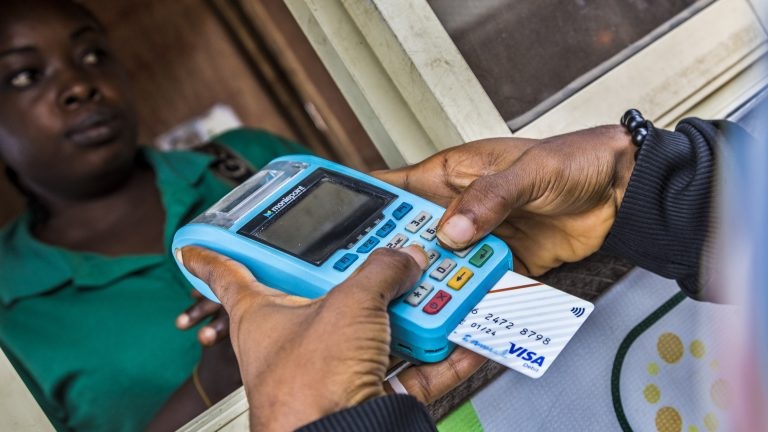
The Central Bank of Nigeria CBN released its guidelines on POS Card Acceptance Services in order to provide a Regulatory Framework for card acceptance services in Nigeria.
This article will be focused on certain provisions of the guidelines with a focus on :-
– Objectives of the guidelines
Tekedia Mini-MBA edition 14 (June 3 – Sept 2, 2024) begins registrations; get massive discounts with early registration here.
Tekedia AI in Business Masterclass opens registrations here.
Join Tekedia Capital Syndicate and invest in Africa’s finest startups here.
– Stakeholders and their roles/responsibilities
– Minimum standards
– Provisions on exclusivity agreements
What are the objectives of the CBN Guidelines?
The guidelines were issued with the objective of having a framework for the provision of minimum standards and requirements for the operations of Point of Sale (POS) card acceptance services.
Who are the named stakeholders in the provision of card acceptance services according to the guidelines and their respective roles/responsibilities?
The guidelines name the following entities as stakeholders in POS card acceptance services :-
- Merchant Acquirers
Roles and Responsibilities
– Only CBN licensed entities can be merchant acquirers.
– Merchant acquirers can own POS terminals, but shall only deploy & support POS terminals through a licensed Payments Terminal Services Provider (PTSP) . However, exceptions can be granted by the CBN where PTSP services are unavailable.
– Every merchant acquirer shall connect all its POS terminals or other acquiring devices directly to a Payment Terminal Services Aggregator.
- Card Issuers
- Merchants
Roles and Responsibilities
- A merchant shall enter into agreements with merchant acquirers, specifying in clear terms the obligations of each party.
- A merchant shall accept cards and other payment tokens as methods of payment for goods and services.
- The merchant shall be held liable for fraud with the card arising from its negligence and/or connivance.
- Cardholders
Roles and Responsibilities
– Store the payment card and protect his PIN with care.
– To not make the payment card available to unauthorized persons.
.- To notify the issuer without delay, about missing, stolen, damaged,lost or destroyed cards.
- Card schemes
Roles and Responsibilities
– All card schemes in Nigeria shall reserve the right to assess the market? to confirm objectivity vis-a-vis international standards.
– No card scheme shall engage in the business of acquiring neither shall any entity that has a management contract with a card scheme engage in the business of acquiring.
- Switching Companies
Roles and Responsibilities
- To ensure that the transactions relating to all cards issued by Nigerian banks are successfully switched between acquirers & issuers.
- To achieve the interconnectivity of all new and existing switching companies.
- Open their networks for reciprocal exchange of transactions and messages with the Nigerian Central switch and Payment Terminal Service Aggregator
- Payments Terminal Service Aggregator (PTSA)
Roles and Responsibilities
– The Nigerian Interbank Settlement Systems (NIBBS) owned by all Nigerian banks and the CBN, shall act as the Payments Terminal Service Aggregator for the financial system.
– The establishment of a communication network for reliable POS data traffic, that shall satisfy the service and availability standards and expectations of the industry on a cost effective basis.
- Payments Terminal Service Providers (PTSPs)
Roles and Responsibilities
– Only CBN-licensed PTSPs shall deploy, maintain & provide support for POS terminals in Nigeria.
– To ensure effectiveness of POS operations and a proper support/maintenance infrastructure.
– PTSPs can identify merchant opportunities & market potential merchants on behalf of acquirers.
– Any party other than a PTSP that deploys POS terminals shall be fined 50 Thousand Naira per day that the terminal remains deployed.
What are the provisions of the guidelines on exclusivity agreements?
The guidelines provide that there shall be no form of exclusivity in any area of payment service, including but not limited to issuing, acquiring, processing and sale/maintenance of hardware and software.
What are the provisions of the guidelines on compliance?
Non-compliance with the provisions of the guidelines will attract sanctions from the CBN.



